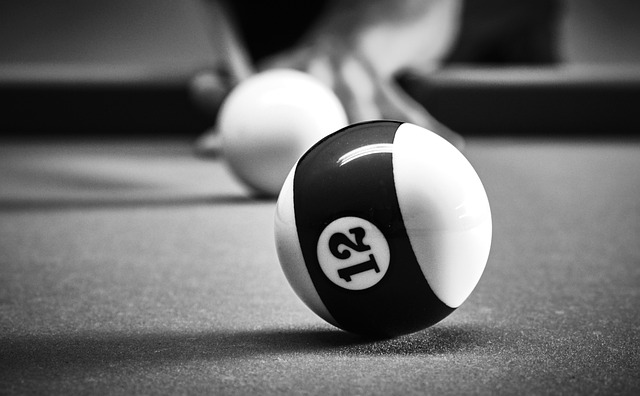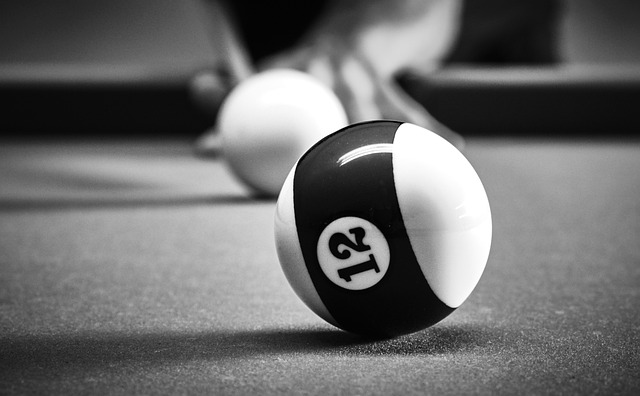Pool cues are made from a variety of woods, and the different types of woods provide different levels of performance. There are many factors to consider when buying a pool cue, including:
– Wood type
– Weight
– Style
– Price
– Cue length
Cue cases are a type of pool cue designed for storing and transporting. They are made from a variety of materials, including wood, plastic, and metal.
Pool games have long been popular as recreational activities. Cue cases have been used to store cues since the beginning of the sport. In the 1800s, cue cases were made from leather and used to carry cues for horseback riding or hunting trips.
Pool cues are an important part of the game. They are used to hit the balls and score points. Pool cues can also be a part of a player’s personal identity as they come in different styles and colors.
In order to make sure that pool cues are safe, manufacturers use cases for them. They use cases so that their customers know that their pool cue is safe to use.
Pool cue cases come in different shapes and sizes to fit any type of player’s preference. There are hard case options, soft case options, and even options with pockets for accessories like chalk or other items needed for playing the game.

Pool cues are a popular game item that can be used for many different types of games. They are often seen in bars, pubs, and other places that serve alcohol.
Pool cues have been around for a long time and have changed in design over time. The most common type of cue today is the pool cue made up of wood or graphite with a leather wrap.
Pool cue cases are the most important accessory to the pool game.
They protect your cue and hold all of your accessories in one place. There are many types of pool cues, so you need a case that is customized for you.
There are many different types of pool cues like straight cues, jump cues, break cues and more. So you need a case that is customized for your type of cue.
Pool cue cases are a type of cases that cover the butt and shaft of a pool cue. They are typically made from wood or plastic and are designed to protect the wood from damage, such as dings or scratches.
Pool cues are often found in bars, billiards rooms, pool halls, and other places where people play pool. The cases come in different shapes, sizes, colors and materials.
The most common types of pool cue case include wooden cases with a wooden butt end that is covered with leather or vinyl; hard plastic cases with a metal butt end; soft-sided cases made of cloth or leather; and hard-sided plastic cases that have an open design.
A pool cue case can also be referred to as a stick case or stick protector.
What are the benefits of pool cue cases?
Pool cues are an essential part of any game and are a lot more difficult to play without the protection of a case. There are many different types of pool cue cases, but this article is focusing on the benefits of pool cue cases.
Pool cue cases offer a variety of benefits. The most important benefit is that they protect your cue from damage and they also help you keep your cues organized. They also come in different shapes and sizes to suit your needs, which makes them easy to find when you need them.
If you’re looking for a way to protect your pool cues and keep them organized, then pool cue cases are the perfect option for you!
The pool cue case is a sleeve that covers the butt of a pool cue. It is designed to protect the butt from damage and wear. There are many benefits of using pool cue cases.
There are many benefits of using pool cue cases. One benefit is that they protect your stick from getting damaged and worn out, which will make it last longer. Another benefit is that they provide extra grip on your stick, so you have better control over it during play. Lastly, there are some styles of pool cues that have unique designs or shapes, which means you need to use a specific style for the design or shape to work properly with your cue case.
Pool Cue Cases:
– Protects your stick from wear and tear
– Provides extra grip on your stick
– Unique designs
Pool cues are a classic accessory for the pool table. They come in different shapes, colors, designs and materials. There are many benefits of pool cue cases which will be discussed in this article.
The benefits of using pool cue cases include protection from damages, increased control and precision when playing, and ease of cleaning. The case also provides a storage space for extra balls and accessories.
Pool cues are expensive items that can easily get damaged if not protected well during use or storage. Pool cue cases provide protection from damages that might happen to the cue during use or before it is stored away after use. This can be done by adding padding to the case or by using a special type of material that absorbs impacts from falls or collisions with other objects while playing on the pool table.
What are the types of pool cue cases?
There are many types of pool cue cases. The most common ones are the hard case, soft case, and vinyl case.
Hard cases are made of a hard plastic material and can be used for a long time without showing any signs of wear and tear. They also protect the cue from getting dents or scratches when it’s not in use.
Soft cases are made of a softer material like leather or vinyl and can be used for a shorter period of time before they start to show wear and tear. They also protect the cue from getting dents or scratches when it’s not in use.
Pool cues are made of wood and come in different types. The most common type is the standard pool cue. There are also other types of pool cues that are made from materials such as plastic, fiberglass, and graphite.
Pool cue case types:
– Standard pool cue case
– Fiberglass pool cue case
– Graphite pool cue case
Pool cue cases are the covers of the pool cues that protect the wood from wear and tear. They can be made from different materials such as leather, suede, wood, plastic, and others.
Pool Cue Cases
Leather Pool Cue Case
Suede Pool Cue Case
Plastic Pool Cue Case
Wooden Pool Cue Case
What are the different kinds of pool cues that can be used in a case?
Pool cues can be categorized into two main types: straight pool cues and pool cues that are bent. Straight pool cues are used in games of straight pool, while the bent ones are used in games of eight-ball or nine-ball.
Straight Pool Cues
8 Ball Cues
9 Ball Cues
There are different kinds of pool cues that are used for various purposes. For example, a pool cue is used for playing billiards or snooker.
There are different kinds of pool cues that can be used in a case. A pool cue is typically made up of wood, and the shaft has a round or octagonal shape with a long protruding knob at one end and an oval-shaped head at the other end. The butt cap is where the joint between the shaft and butt cap meets, which is usually made of bone or ivory, while the point protector is where the foot meets the butt cap, which is usually made of rubber or leather.
Pool cues vary in length depending on how long they need to be to reach from one end to another when they are held in playing
A pool cue is a stick with a round or elliptical head and usually a cylindrical shaft with an attached butt-end. Pool cues are used to hit balls in billiards, pocket billiards, and other games.
Pool cues can be classified into three types: straight pool cues, carom (or jumping) pool cues, and combination (or jump) pool cues. Straight pool cues are the most common type of cue used in the game of straight pool. The tip of the cue is pointed while carom or jumping-type cues have their tips rounded off to produce a spinning effect when contacting the object ball or cushion. Jumping-type combinations have their tips rounded off to produce either a spinning effect when contacting an object ball or cushion, or a sweeping action when contacting both.
How do you clean a pool cue case?
The pool cue case is a hard-shelled case designed to protect the pool cue from damage. It is usually made of wood or a type of plastic.
Cleaning the pool cue case involves using a cloth and some mild soap to remove any dirt that has accumulated on the exterior of the case. This can be done by wiping down the exterior with a damp cloth, then use soap and water to wash it thoroughly.
The best way to clean your pool cue case is by using warm water and dishwashing liquid in a sink or bucket. After you have soaked it for about ten minutes, use your hands to scrub away any remaining dirt that has not been removed by dishwashing liquid. Rinse out your pool cue case thoroughly with clean water before you store it back in its original location.
The best way to clean a pool cue case is to use a soft cloth and mild detergent. Avoid using harsh chemicals such as bleach or ammonia.
Pool cues are expensive and can be easily damaged. This means that you need to protect your cue from the elements, dirt, and any kind of damage. One way to do this is by using a pool cue case.
The first step in cleaning a pool cue case is to remove all the dirt from inside it. You can do this by hand or with a vacuum cleaner. After all the dirt has been removed, you should use a scrubbing brush on the interior of the case to remove any remaining residue or stains. Finally, use soap and water to clean it off and make sure that everything is dry before you put your cue back into it.
How do you keep your case from getting dirty?
The case is the most important part of a watch because it protects the watch from damage. Keeping your case clean and in good condition is essential if you want to keep your watch looking new.
If you wear a suit every day, you should find ways to protect your suit from getting dirty. This can be done by wearing a suit cover or by using a special cleaning cloth like the one that comes with this product.
The best way to keep your case clean is by using an aftermarket strap that has been designed specifically for watches.
The case is the most important part of a watch. It protects the watch from dirt and dust, and it’s also where you find all the information about the watch. The most popular materials for making cases are metal, plastic and leather.
If you want to keep your case clean and looking good, then you should be careful with what you put on it. Make sure that you don’t leave your watch in contact with any of these materials: cosmetics, lotions, oils, perfumes, food or drink.
There are many ways that you can keep your case from getting dirty. One of the most common ways is to use a case cover.
The first step in keeping your case from getting dirty is to make sure that it is in good condition and doesn’t have any scratches or dents. If this isn’t possible, then you should buy a case cover.
If you are using a laptop, then you can use an anti-static bag to prevent any damage caused by static electricity.
What is the difference between a hard and soft case for a pool cue?
Pool cues are designed in two different ways. They are either made of hard or soft material.
Hard case pool cues are primarily made of wood and have a rigid plastic or metal coating on the shaft. The shaft is typically covered with a leather wrap for grip.
Soft case pool cues are typically made of rubber, plastic, or nylon and have a cloth-covered grip that is often wrapped with leather to provide grip. The shaft is also coated with a thin layer of rubber or plastic for protection from the elements and impact damage.
A hard case is designed to protect the cue from damage and other external factors such as dust and water. A soft case is designed to be more comfortable for the player.
The difference between a hard and soft case can be explained by their design. Hard cases are made of durable materials while soft cases are softer, more flexible, and easier to carry around.
The difference between a hard and soft case is that the former is made of a harder material than the latter.
Hard cases are usually made of vinyl or leather. The material can be an additional layer of protection for your cue. On the other hand, soft cases are made of neoprene, which is not as durable as vinyl or leather.
Soft cases are more comfortable to carry around and they also have an anti-slip feature which prevents your cue from slipping out of your hands during play.


